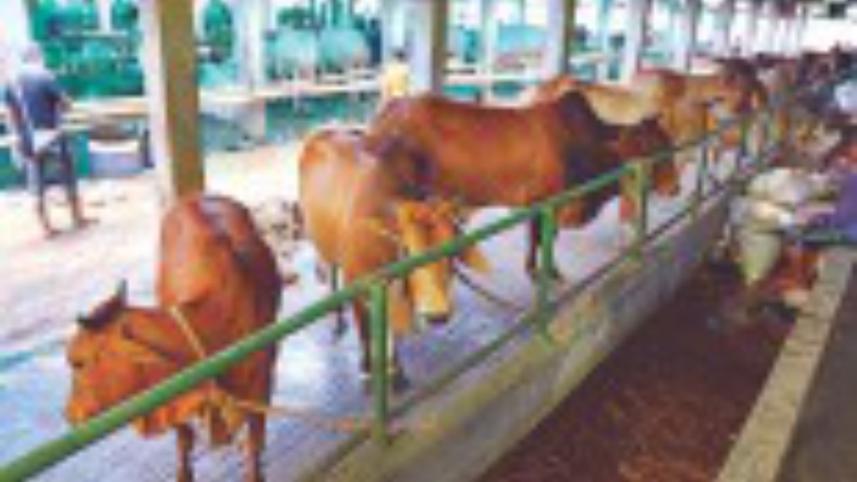Over-usage of antibiotics in cattle

Farmers are treating cattle diseases with a mixture of antibiotics that has reached dangerous levels. The meat and milk we consume could be harmful for us because of this. Rural farmers have been turning to pharmacies in a bid to tackle the various diseases that affect their livestock because there are simply not enough veterinarians (vets) available. That, coupled with the fact that our farmers remain largely ignorant of precisely how much medication can be administered to their animals before the meat (or milk) becomes a health hazard as it enters the food chain, has made the situation worse. What we know from conducted studies is that antibiotics used to treat infections caused by bacteria, protozoa, parasites and fungi ultimately end up in cattle milk. The presence of high levels of antibiotics in milk ultimately result in antibiotic-resistance in human bodies.
While it is easy to blame lax monitoring for this situation, it is also true that that rural farmers often have to rely on quacks and pharmacy compounders for veterinary advice. With some 65,000 commercial cattle farms boasting an estimated population of 2.39 crore cows, Bangladesh suffers from a severe shortage of vets, and in this situation, farmers are often recommended to administer their cattle with human-grade antibiotics. As pointed out by officials of the department of livestock services, each upazila has only one veterinary surgeon to look after all the cattle in the area. With some 118 posts of veterinary surgeons vacant, the department faces an impossible task.
That basically sums up the situation. In the absence of requisite number of vets at upazila level, the situation cannot be expected to improve. Only when farmers have access to professional vets can we expect them to take up the issue of public health seriously. Authorities need to take the issue of recruiting qualified vets seriously and this should be done on a priority basis. Public health should not be endangered because there is a dearth of qualified veterinarians at upazila level.



 For all latest news, follow The Daily Star's Google News channel.
For all latest news, follow The Daily Star's Google News channel.
Comments